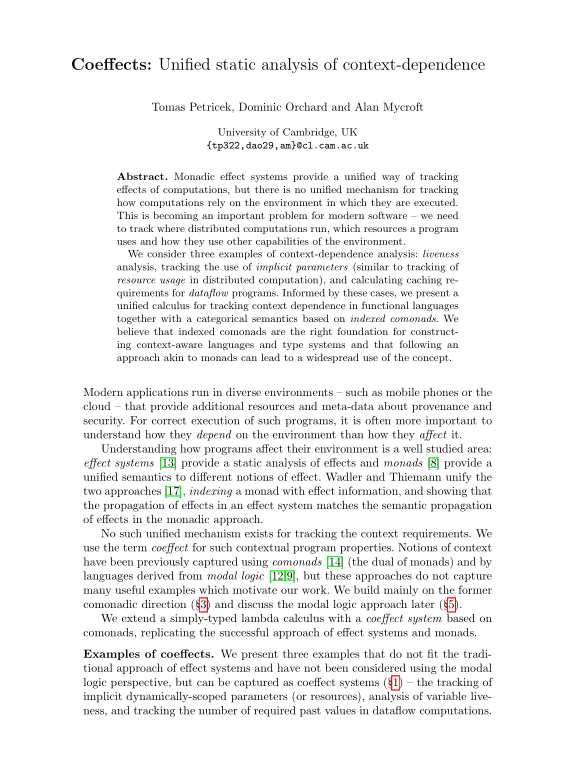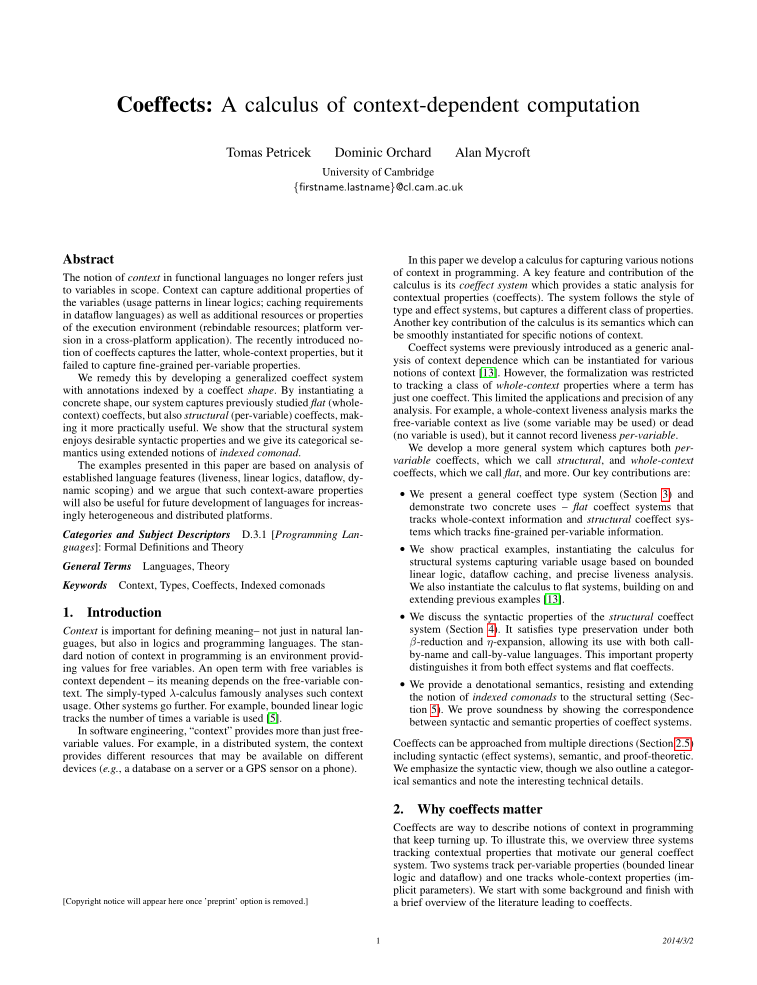type RulePart =
| Expr of string
| Text of string
| Op of string * RulePart * RulePart
| Color of string * RulePart
| Frac of RulePart * RulePart
| Space of RulePart
member AsLatex : unit -> string
static member ( + ) : l:RulePart * r:RulePart -> RulePart
Full name: Index.RulePart
| Expr of string
| Text of string
| Op of string * RulePart * RulePart
| Color of string * RulePart
| Frac of RulePart * RulePart
| Space of RulePart
member AsLatex : unit -> string
static member ( + ) : l:RulePart * r:RulePart -> RulePart
Full name: Index.RulePart
union case RulePart.Expr: string -> RulePart
Multiple items
val string : value:'T -> string
Full name: Microsoft.FSharp.Core.Operators.string
--------------------
type string = System.String
Full name: Microsoft.FSharp.Core.string
val string : value:'T -> string
Full name: Microsoft.FSharp.Core.Operators.string
--------------------
type string = System.String
Full name: Microsoft.FSharp.Core.string
union case RulePart.Text: string -> RulePart
union case RulePart.Op: string * RulePart * RulePart -> RulePart
union case RulePart.Color: string * RulePart -> RulePart
union case RulePart.Frac: RulePart * RulePart -> RulePart
union case RulePart.Space: RulePart -> RulePart
val x : RulePart
member RulePart.AsLatex : unit -> string
Full name: Index.RulePart.AsLatex
Full name: Index.RulePart.AsLatex
val format : (RulePart -> string)
val s : string
val r : RulePart
val t : RulePart
val b : RulePart
val c : string
val op : string
val l : RulePart
val l : string
val r : string
val e : RulePart
Full name: Index.e
Full name: Index.e
val e1 : RulePart
Full name: Index.e1
Full name: Index.e1
val e2 : RulePart
Full name: Index.e2
Full name: Index.e2
val t : RulePart
Full name: Index.t
Full name: Index.t
val t1 : RulePart
Full name: Index.t1
Full name: Index.t1
val t2 : RulePart
Full name: Index.t2
Full name: Index.t2
val tn : RulePart
Full name: Index.tn
Full name: Index.tn
val v : RulePart
Full name: Index.v
Full name: Index.v
val v1 : RulePart
Full name: Index.v1
Full name: Index.v1
val v2 : RulePart
Full name: Index.v2
Full name: Index.v2
val vn : RulePart
Full name: Index.vn
Full name: Index.vn
val x : RulePart
Full name: Index.x
Full name: Index.x
val s : RulePart
Full name: Index.s
Full name: Index.s
val s1 : RulePart
Full name: Index.s1
Full name: Index.s1
val s2 : RulePart
Full name: Index.s2
Full name: Index.s2
val r : RulePart
Full name: Index.r
Full name: Index.r
val Gamma : RulePart
Full name: Index.Gamma
Full name: Index.Gamma
val clr1 : e:RulePart -> RulePart
Full name: Index.clr1
Full name: Index.clr1
val e : RulePart
val clr2 : e:RulePart -> RulePart
Full name: Index.clr2
Full name: Index.clr2
val white : e:RulePart -> RulePart
Full name: Index.white
Full name: Index.white
val v : RulePart
val g : RulePart
val a : RulePart
val kvd : s:string -> RulePart
Full name: Index.kvd
Full name: Index.kvd
val ident : s:string -> RulePart
Full name: Index.ident
Full name: Index.ident
Multiple items
val ref : _arg1:RulePart -> RulePart
Full name: Index.ref
--------------------
type 'T ref = Ref<'T>
Full name: Microsoft.FSharp.Core.ref<_>
val ref : _arg1:RulePart -> RulePart
Full name: Index.ref
--------------------
type 'T ref = Ref<'T>
Full name: Microsoft.FSharp.Core.ref<_>
val failwith : message:string -> 'T
Full name: Microsoft.FSharp.Core.Operators.failwith
Full name: Microsoft.FSharp.Core.Operators.failwith
val effs : l:RulePart list -> RulePart
Full name: Index.effs
Full name: Index.effs
val l : RulePart list
Multiple items
module List
from Microsoft.FSharp.Collections
--------------------
type List<'T> =
| ( [] )
| ( :: ) of Head: 'T * Tail: 'T list
interface IEnumerable
interface IEnumerable<'T>
member Head : 'T
member IsEmpty : bool
member Item : index:int -> 'T with get
member Length : int
member Tail : 'T list
static member Cons : head:'T * tail:'T list -> 'T list
static member Empty : 'T list
Full name: Microsoft.FSharp.Collections.List<_>
module List
from Microsoft.FSharp.Collections
--------------------
type List<'T> =
| ( [] )
| ( :: ) of Head: 'T * Tail: 'T list
interface IEnumerable
interface IEnumerable<'T>
member Head : 'T
member IsEmpty : bool
member Item : index:int -> 'T with get
member Length : int
member Tail : 'T list
static member Cons : head:'T * tail:'T list -> 'T list
static member Empty : 'T list
Full name: Microsoft.FSharp.Collections.List<_>
val reduce : reduction:('T -> 'T -> 'T) -> list:'T list -> 'T
Full name: Microsoft.FSharp.Collections.List.reduce
Full name: Microsoft.FSharp.Collections.List.reduce
val rref : _arg1:RulePart -> RulePart
Full name: Index.rref
Full name: Index.rref
val wref : l:RulePart -> r:RulePart -> RulePart
Full name: Index.wref
Full name: Index.wref
val fn : x:RulePart -> f:RulePart -> t:RulePart -> RulePart
Full name: Index.fn
Full name: Index.fn
val f : RulePart
val abs : v:RulePart -> e:RulePart -> RulePart
Full name: Index.abs
Full name: Index.abs
val sem : e:RulePart -> RulePart
Full name: Index.sem
Full name: Index.sem
val getNews : unit -> 'a
Full name: index.getNews
Full name: index.getNews
val news : 'a * string
val query : Linq.QueryBuilder
Full name: Microsoft.FSharp.Core.ExtraTopLevelOperators.query
Full name: Microsoft.FSharp.Core.ExtraTopLevelOperators.query
val let_jdg : RulePart
Full name: Index.let_jdg
Full name: Index.let_jdg
val let_drv : RulePart
Full name: Index.let_drv
Full name: Index.let_drv
val ef_gam : RulePart
Full name: Index.ef_gam
Full name: Index.ef_gam
val ef_simple : RulePart
Full name: Index.ef_simple
Full name: Index.ef_simple
val ef_full : RulePart
Full name: Index.ef_full
Full name: Index.ef_full
val abs_write : RulePart
Full name: Index.abs_write
Full name: Index.abs_write
val abs_access : RulePart
Full name: Index.abs_access
Full name: Index.abs_access
val abs_eff : RulePart
Full name: Index.abs_eff
Full name: Index.abs_eff
val abs_coeff : RulePart
Full name: Index.abs_coeff
Full name: Index.abs_coeff
val sem_plain : RulePart
Full name: Index.sem_plain
Full name: Index.sem_plain
val sem_coeff : RulePart
Full name: Index.sem_coeff
Full name: Index.sem_coeff


